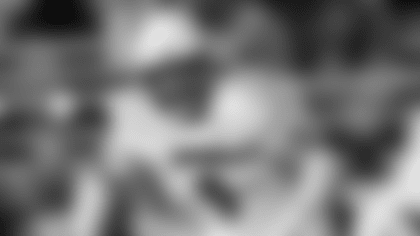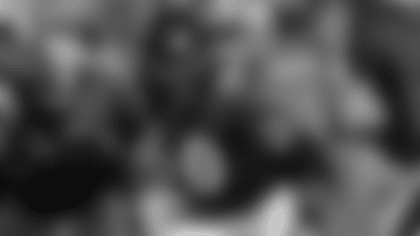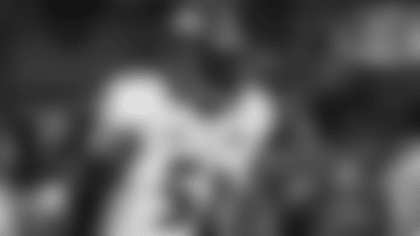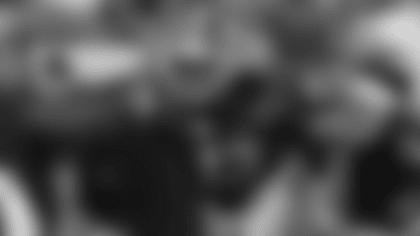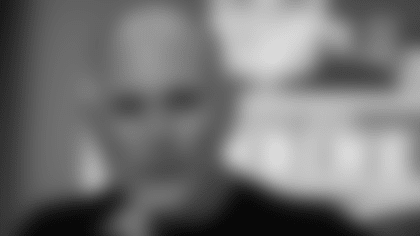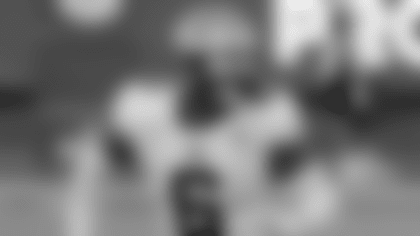As John Harbaugh works to assemble his coaching staff, BR.com had a chance to dig a little more into the background of the Ravens' new head coach. We sat down with Ike Reese, current analyst for the Philadelphia Eagles' Television Network, who knows Harbaugh very closely.
A special teams ace, Reese played from 1998-2004 under Harbaugh's stellar special teams units for the Eagles. In addition, Harbaugh recruited Reese out of high school when the coach was at the University of Cincinnati.
Here is what Reese had to say about his former coach:
BR.com: What was your first reaction when you heard John Harbaugh was the Ravens' new head coach?
Reese: "Actually, my initial reaction was a little surprising, mainly because of how quickly he rose up the ranks and really only having one year as a set position coach. And that's even back when he was in the running for the UCLA job. But, once I got past that, I've always known how smart he is as a coach. His knowledge about the game of football has always been there.
"I started getting excited for him when I heard that he was being brought back for a second interview and it was between him and Jason Garrett. You had to think, 'Man, this might really happen. He's getting ready to become a head coach!' I was especially excited for him because we both came into the league at the same time. I was a rookie when he went to the Eagles, and I watched him grow as a coach, as a person and as a communicator."
What was the toughest job for Harbaugh at that point?
"Making the transition from college to the pros and not dealing with teenagers anymore. You've got grown men with families that make more money than you. I saw him become a great communicator and handle the adjustment very well. It showed in the way that the players performed and the production on the field for that unit."
Harbaugh was known to get many of the veterans that wouldn't typically play special teams to commit to that unit. What types of things would he do to foster that sense of ownership?
"One of the most important things he did with the veterans was to treat them like men in the special teams meeting room. You take Brian Dawkins, for example. He played the wing guy on our punt team earlier in his career, so 'Dawk' would be able to come into that meeting for the punt part and then leave when his duties were covered. The veterans didn't go through it [at half-speed], and neither did John. He made sure he got those guys coached up in the time he had them, and the veterans appreciated it. That just meant they would work harder in practice when John had them, too.
"To the players that were just regular special teams players, it made them take notice. They're say, 'Well, if this guy's out here - and he's a perennial Pro Bowler - busting his butt, who am I not to bust my butt when I'm out here?' I think [Eagles head coach] Andy Reid signed off on that, and it gave John the opportunity to get these guys that were All Americans in college and first-round draft picks committed to special teams every year. It's not a phase of the game you can just take off, and John did a great job of listening to his veteran players. At the same time, he demanded excellence every time he was with the veterans."
How did he raise other teams' awareness of him as a head coaching candidate by moving to coach the secondary?
"His organizational skills were there. But, learning under a guy like [Eagles defensive coordinator] Jim Johnson was crucial. You know, John used to sit in on our defensive meetings. I vividly remember over the years that he would focus on a position week-to-week. For example, he would say, 'OK, this week, I'm going to focus on the defensive line.' And then he'd go sit in with [former defensive line coach] Tommy Frazier for defensive line drills. He would do that with each group, and I think he would even do that with the offense. That was John. You could tell that he wasn't just a special teams coach. You knew there was more there and that this was a guy that was not satisfied with being a special teams coach for the rest of his career. He had bigger aspirations in mind.
"He switched over to the secondary not only to better himself, but to prove to the other coaches that he was serious about moving up in the ranks. Everything he did was to prepare him for his current position."
As a guy that played for him for so long, what was his relationship with the players like?
"Because of the relationship I had with John, I would come in on Tuesdays - which is our day off - and we would break down film, of course. But, when that was over, we would just talk about life. That's when I realized that he was a guy that has bigger things in store and can lead a team.
"Honestly though, I don't think even he could have thought it would happen this fast, but I'm happy for him that it did." (laughs)


